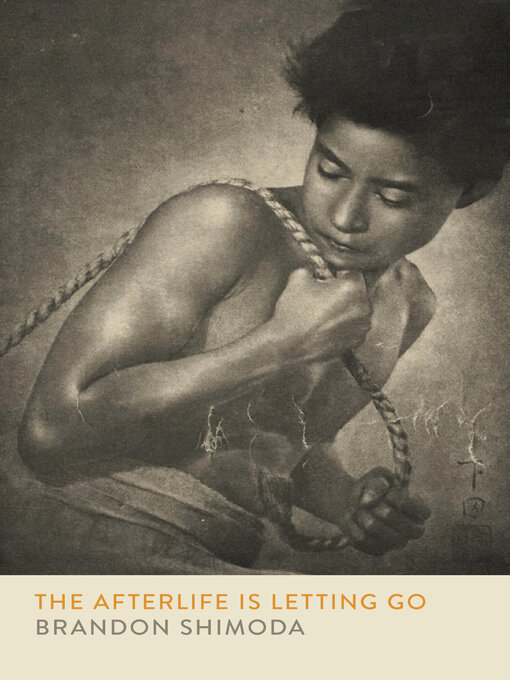Chosen one of Booklist's TOP TEN History Books of the Year!
"The Afterlife Is Letting Go is a meditative consideration of Japanese American incarceration during WWII by Brandon Shimoda, author of the PEN Open Book Award–winning The Grave on the Wall."—Matt Seidel, Publishers Weekly's "Big Indie Books"
"Both personal and choral, The Afterlife is Letting Go is deeply felt, precise, and as generous in its insights as it is unsparing in its critiques of how 'exclusion zones' proliferate and reach across time and space. A stirring, trenchant, and necessary work."—Christina Sharpe, author of Ordinary Notes
In a series of reflective, multi-layered, sometimes multi-voiced essays, poet Brandon Shimoda explores the "afterlife" of the U.S. government's forced removal and mass incarceration of Japanese immigrants and Japanese Americans during WWII, excavating the ways these events continue to resonate today. What emerges is a panoramic, yet intimate portrait of intergenerational trauma and healing.
Informed by personal/familial history, years of research and travel, including visits to museums, memorials and the ruins of incarceration sites, these essays take us on both a physical and a metaphysical journey. What becomes increasingly clear are the infinite connections between the treatment of Japanese Americans and other forms of oppression, criminalization, dispossession, and state violence enacted by the United States, past, present, and ongoing.


